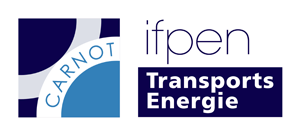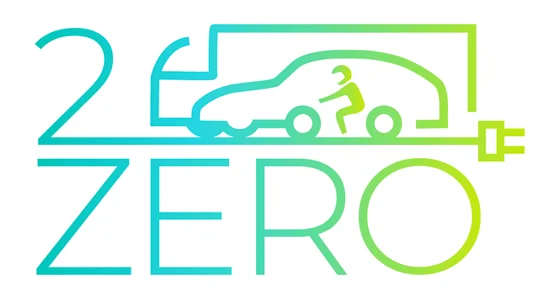 Electrified Mobility
Electrified Mobility
Our networks
COMPETITIVENESS CLUSTERS, CONSORTIUMS
CARA European Cluster for Mobility Solutions
IFPEN is one of the founding members of CARA, the Auvergne-Rhône-Alpes region competitiveness cluster set up to support changes in urban transport systems and represent the 6 sectors: automobile, industrial vehicle, guided air transport, river transport, rail, bicycle & micromobility.
NEXTMOVE: FOR MORE ENVIRONMENTALLY-FRIENDLY TRANSPORT
IFPEN is one of the founding members of the NextMove competitiveness cluster, which leads an industrial and scientific ecosystem dedicated to issues surrounding the mobility of the future. It is also one of its most active members
EGVIAfor2Zero : Pour un transport sans émission en Europe

IFPEN is a member of the EGVIAfor2Zero (European Green Vehicles Initiative Association for the 2Zero partnership) association set up to accelerate the transition of the European road transport sector to “zero emissions”.
European Projects
MAGELLAN : Fully recyclable magnets and electric motors
Launched in 2024, the European MAGELLAN project is aimed at developing magnet treatment processes (oxide and coating removal, melting/pulverization) in order to be able to obtain powders that can be reused to manufacture new magnets. It harnesses innovative permanent magnet manufacturing technologies (powder injection molding) and uses improvements in electric machine design to facilitate clean separation of materials from end-of-life motors, with a focus on magnet recovery. IFPEN is contributing to the eco-design of the motor, battery definition and qualification and test bench validation of the motor and magnets produced by ORANO in Europe.
This project received funding from the European Union’s H2020 research and innovation program through grant agreement 101138260.
ENLIGHTEN : Demonstration of a 1200V vehicle
Launched in 2024, the HORIZON EUROPE ENLIGHTEN project aims to develop, integrate and test a next generation electric vehicle powertrain with a voltage level of 1200V. This is a more efficient, more economical and more durable powertrain. An advanced electrical system architecture will be demonstrated in a C-segment vehicle. The delivered powertrain will notably integrate a motor and inverter system, developed by IFPEN. The inverter will use gallium nitride (GaN) semiconductors, while the motor will be designed to operate reliably and robustly under 1200V DC, and to enable clean and energy-efficient collection. energy from end-of-life and recyclable materials.
ARCHIMEDES : More reliable electronic components to accelerate the mobility transition
Launched in 2023, the European ARCHIMEDES (Trusted lifetime in operation for a circular economy) project is developing components, models and methodologies to increase the efficiency and lifespan of power electronic equipment and energy storage devices in the automotive, aviation and industrial sectors, thereby helping to accelerate the energy transition. IFPEN is working on the development of methodologies for the evaluation of the technical challenges associated with the reliability of the Wide Band Gap components used in two-way chargers and traction inverters.
This project received funding from the European Union’s H2020 research and innovation program through grant agreement 101112295.
EMPOWER : Innovative motors for zero-emission heavy trucks
Launched in 2023, the Horizon Europe EMPOWER project is aimed at developing two zero-emission, flexible, modular and scalable heavy-duty vehicles, with a total weight when fully loaded of 40 metric tons or more. The two vehicles will be fitted with the same electric powertrain. The first will be powered by a fuel cell system and have a range of 750 km, while the second will be battery powered and have a range of 400 km.
IFPEN is responsible for developing efficient driving and vehicle-to-grid communication (energy transfer from the vehicle battery to the electric grid) strategies, evaluating the Total Cost of Ownership (TCO) and designing the electric propulsion system (motor and inverter).
This project received funding from the European Union’s H2020 research and innovation program through grant agreement 848180.
SMAC-FC : Innovative air compressors for fuel cells
The Ademe SMAC-FC (Smart & Modular Advanced Compressor for Fuel Cell) project, led since 2022 by ENOGIA, a company specializing in micro-turbomachines, in partnership with IFPEN and the PPRIME institute (a joint CNRS/Poitiers University research unit), is aimed at developing a new generation of air compressors for hydrogen fuel cells (PEMFC). Within this project, IFPEN is responsible for developing a compact power electronics solution, with modular power and voltage (8 and 30 kW), as well as the associated control algorithms.
HYSySPEM : Optimization of hybrid energy systems with multi-stack PEM stack fuel cells for heavy duty transportation applications
Started in November 2022, the ANR HYSySPEM project (Optimization of HYbrid energy SyStem with multi-stack PEM fuel cells for heavy duty transportation applications)s registered in the PEPR-H2 (carbon-free hydrogen) and brings together most of the French academic laboratories specializing in fuel cells (Ampère, FEMTO-ST, IJL, LEMTA, IREENA) as well as CEA-Liten (coordinator). In this project, IFPEN is involved in the development of a new generation of converters aimed at improving the lifespan of fuel cells, in a multi-stack configuration, for heavy transport (heavy goods vehicles and rivers).
This project benefited from state aid managed by the National Research Agency under France 2030 bearing the reference ANR-22-PEHY-0018.
MAUTIV’8 : Eco-designed traction inverter for road transport
The CORAM MAUTIV’8 (Multipurpose AUtomotive Traction InVerter 800V) project, conducted since 2022 by a consortium bringing together Punch Powertrain France (leader), EFI, Mersen, MTB Recycling and IFPEN, is aimed at developing an eco-designed 800V traction inverter for road transport (light vehicles, light commercial vehicles, utility vehicles) with significantly enhanced properties, delivering a considerable increase in power densities compared to the state of the art. IFPEN teams are notably developing laws for the reduction through control of electrical disturbances linked to the use of SiC transistors.
H2D2 : High-power H2 electrification
The Ademe H2D2 project, launched at the end of 2021 and conducted within the framework of the Démonstrateurs et territoires d’innovation de grande ambition (DTIGA, Ambitious Demonstrators and Innovative Territories) program, is aimed at developing a fuel cell powertrain for vehicles weighing in excess of 8 tons offering high power, torque and range, with the potential for retrofitting. IFPEN developed an electric powertrain and power electronics meeting these criteria. A Kässbohrer snow groomer has been retrofitted with the complete powertrain. The solution may now be used in other high-power road and off-road vehicles.
OLEA-EVO : Control algorithms to increase the range of electric vehicles
The OLEA EVO project, selected in 2021 by Coram and led, with IFPEN and other partners, by Silicon Mobility, an SME specializing in semiconductors and onboard software, is aimed at increasing the range of electric vehicles by reducing losses in the inverter and electric motor through the use of innovative control algorithms. IFPEN’steams have developed advanced models to estimate these losses and thus enable their optimization through control. They have also conducted test bench evaluations following several standard test cycles.
REDHAT MOTOR : An innovative axial flux electric motor technology
Launched in 2021, the ANR RedHat Motor (Reliable motors with high torque and power densities) project, coordinated by the Electrotechnical Systems and Environmental Research Lab (LSEE) at Artois University with partners CRITT M2A, EREM and IFPEN, is aimed at delivering significant improvements to the torque and power densities of onboard electric motors in vehicles. Teams have designed an axial flux motor that uses new materials, including inorganic insulators for the windings, capable of withstanding high temperatures. IFPENprovided advanced models for estimating the thermal distribution and mechanical constraints within the motor. It also designed the inverter that integrates SiC (silicon carbide) power modules and advanced control strategies that reduce stress on winding insulation. Models were used to validate the degree of mechanical deformation of the rotor under the effect of electromagnetic forces, as well as the efficiency of the stator and rotor cooling system.








